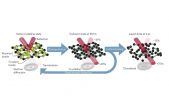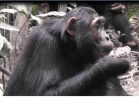Stressed out plants send animal-like signals
2015-07-29
(Press-News.org) University of Adelaide research has shown for the first time that, despite not having a nervous system, plants use signals normally associated with animals when they encounter stress.
Published today in the journal Nature Communications, the researchers at the Australian Research Council (ARC) Centre of Excellence in Plant Energy Biology reported how plants respond to their environment with a similar combination of chemical and electrical responses to animals, but through machinery that is specific to plants.
"We've known for a long-time that the animal neurotransmitter GABA (gamma-aminobutyric acid) is produced by plants under stress, for example when they encounter drought, salinity, viruses, acidic soils or extreme temperatures," says senior author Associate Professor Matthew Gilliham, ARC Future Fellow in the University's School of Agriculture, Food and Wine.
"But it was not known whether GABA was a signal in plants. We've discovered that plants bind GABA in a similar way to animals, resulting in electrical signals that ultimately regulate plant growth when a plant is exposed to a stressful environment."
By identifying how plants respond to GABA the researchers are optimistic that they have opened up many new possibilities for modifying how plants respond to stress.
"The major stresses agricultural crops face like pathogens and poor environmental conditions account for most yield losses around the planet - and consequently food shortages," says co-lead author Professor Stephen Tyerman.
"By identifying how plants use GABA as a stress signal we have a new tool to help in the global effort to breed more stress resilient crops to fight food insecurity."
Despite a similar function, the proteins that bind GABA and their mammalian counterparts only resemble each other in the region where they interact with the neurotransmitter - the rest of the protein looks quite different.
"This raises very interesting questions about how GABA has been recruited as a messenger in both plant and animal kingdoms," says co-lead author Dr Sunita Ramesh. "It seems likely that this has evolved in both kingdoms separately."
The researchers say these findings could also explain why particular plant-derived drugs used as sedatives and anti-epileptics work in humans. These drugs are able to interact with proteins in the GABA-signalling system in both plants and animals -- suggesting that future work on other plant GABA signalling agents will also benefit the medical field.
The work also involved researchers at CSIRO Canberra, the University of Tasmania, the Gulbenkian Institute in Portugal and the University of Maryland, USA.
INFORMATION:
Media Contact:
Associate Professor Matthew Gilliham
ARC Future Fellow and Chief Investigator
ARC Centre of Excellence in Plant Energy Biology
School of Agriculture, Food and Wine
The University of Adelaide
Phone: +61 8 8313 8145
Mobile: +61 431 663 614
matthew.gilliham@adelaide.edu.au
Professor Steven Tyerman
ARC Centre of Excellence in Plant Energy Biology
School of Agriculture, Food and Wine
The University of Adelaide
Phone: +61 8 8313 6663
Mobile: +61 411 776 050
steve.tyerman@adelaide.edu.au
Robyn Mills
Media Officer
The University of Adelaide
Phone: +61 8 8313 6341
Mobile: +61 (0)410 689 084
robyn.mills@adelaide.edu.au
ELSE PRESS RELEASES FROM THIS DATE:
2015-07-28
Bari, Italy, July 28, 2015 -- A new study by researchers at the University of Bari Aldo Moro, Bari, Italy, Geriatric Unit & Laboratory of Gerontology and Geriatrics, IRCCS "Casa Sollievo della Sofferenza", San Giovanni Rotondo, Foggia, Italy, and Istituto Superiore di Sanità (ISS), Roma, Italy, estimates the association between change or constant habits in coffee consumption and the incidence of mild cognitive impairment (MCI), evaluating 1,445 individuals recruited from 5,632 subjects, aged 65-84 year old, from the Italian Longitudinal Study on Aging (ILSA), a population-based ...
2015-07-28
Rewritable CDs, DVDs and Blu-Ray discs owe their existence to phase-change materials, those materials that change their internal order when heated and whose structures can be switched back and forth between their crystalline and amorphous phases. Phase-change materials have even more exciting applications on the horizon, but our limited ability to precisely control their phase changes is a hurdle to the development of new technology.
One of the most popular and useful phase-change materials is GST, which consists of germanium, antimony, and tellurium. This material is ...
2015-07-28
Hercules, CA -- July 28, 2015 -- Droplet Digital PCR (ddPCR™) has been shown to be a useful tool for the identification of microRNAs (miRNA) circulating in the blood that could serve as potential cancer biomarkers. A study in the journal Oncotarget further supports these findings and identifies a novel miRNA that shows great potential for breast cancer diagnosis. These findings confirm the potential clinical utility of ddPCR technology to precisely and reliably quantify cell-free miRNAs. The study also emphasizes that sample type as well as its preparation are critical ...
2015-07-28
ANN ARBOR--Secondary students found healthier foods on more lunch menus in 2013 than in 2011, resulting in fewer nutrition disparities for small schools or those with racially diverse student bodies.
The findings by University of Michigan researchers show significant improvements made in the National School Lunch Program at public middle and high schools in 2013 after many years of meal disparities based on school size or demographics.
"While these improvements are encouraging, continued progress is needed," said Yvonne Terry-McElrath, a researcher at the U-M Institute ...
2015-07-28
Wild chimpanzees in the forests of Uganda are increasingly eating clay to supplement the minerals in their diet, according to a long-term international study published in the early version of the journal PLOS ONE. The paper led by the University of Oxford describes how the researchers observed wild chimpanzees in the Budongo forest eating and drinking from clay pits and termite mounds. The paper concludes that this change in diet may be partly due to the widespread destruction of raffia palm trees that chimps relied on for their minerals in the past. However, the main reason ...
2015-07-28
(SACRAMENTO, Calif.) -- UC Davis health economists have for the first time projected the total costs of caring for all people with autism spectrum disorder (ASD) in the U.S. for the current calendar year and in 10 years if effective interventions and preventive treatments for the condition are not identified and widely available.
Their forecasts for ASD-related medical, nonmedical and productivity losses are $268 billion for 2015 and $461 billion for 2025. The researchers noted that these estimates are conservative and, if ASD prevalence continues to increase as it has ...
2015-07-28
The continuous quality improvement (CQI) approach was introduced on a pilot basis to 30 sites across Uganda. This approach identified barriers in achieving national standards for voluntary medical male circumcision (VMMC), identified possible solutions to overcome these barriers, and carried out improvement plans to test these changes while collecting performance data to objectively measure whether they had bridged gaps.
Teams used a 53-indicator quality assessment tool adapted by the Ministry of Health and based on the WHO VMMC Quality Toolkit as a management tool to ...
2015-07-28
Surgeons at The Children's Hospital of Philadelphia (CHOP) joined with colleagues from Penn Medicine recently to complete the world's first bilateral hand transplant on a child. Earlier this month, the surgical team successfully transplanted donor hands and forearms onto eight-year-old Zion Harvey who, several years earlier, had undergone amputation of his hands and feet and a kidney transplant following a serious infection.
Led by L. Scott Levin, M.D., FACS*, Chairman of the Department of Orthopaedic Surgery at Penn Medicine, Director of the Hand Transplantation Program ...
2015-07-28
Whether online auctions are selling rare Pokemon cards or fine art, the science behind inciting the highest bids gets a boost from a paper to be published in the September issue of the Journal of Retailing. Researchers from Germany and Australia teamed up to explore how bidders' emotions are affected by different types of auctions and how those emotions affect their bidding.
In "Auction Fever! How Time Pressure and Social Competition Affect Bidders' Arousal and Bids in Retail Auctions," the three authors - Marc T.P. Adam of the University of Newcastle, Professor ...
2015-07-28
PHILADELPHIA - Whether you're a human, a mouse, or even a fruitfly, losing sleep is a bad thing, leading to physiological effects and behavioral changes. One example that has been studied for many years is a link between sleep loss and aggression. But it can be difficult to distinguish sleep loss effects from stress responses, especially in rodent or human models.
A team of researchers from the Perelman School of Medicine at the University of Pennsylvania used fruitflies to probe deeper into the cellular and molecular mechanisms that govern aggression and sleep. They ...
LAST 30 PRESS RELEASES:
[Press-News.org] Stressed out plants send animal-like signals

